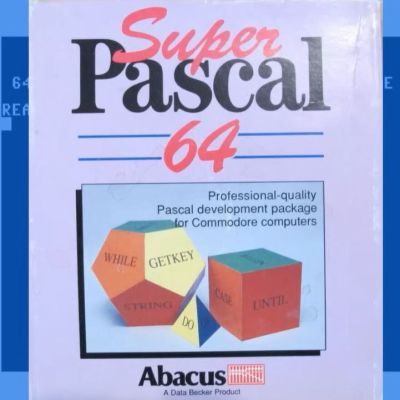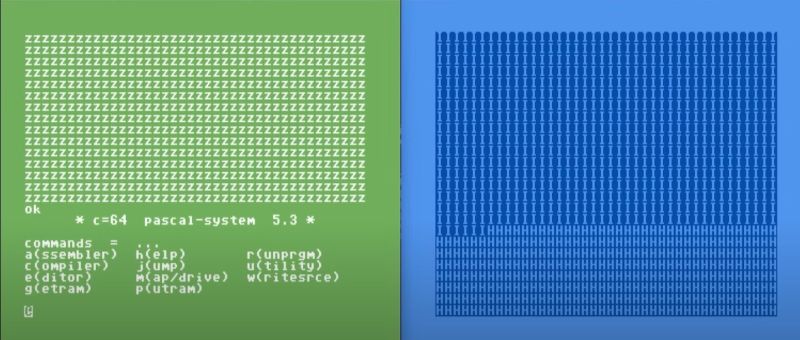
Most people associate the Commodore 64 with Commodore BASIC and precompiled applications, but it also had a number of alternative development environments produced for it. One of these was Super Pascal 64 by Abacus. A solid introduction to this software package is provided in a video tutorial by [My Developer Thoughts] on YouTube. This uses the Abacus Super Pascal 64 software and manual from the [Lyon Labs] website, which incidentally has a lot more development environments and operating systems for the C64 listed for your perusal.
Abacus’ Super Pascal supports the official Pascal language, requiring nothing more than a Commodore 64 and two Commodore 1541 floppy disk drives to get started. One FDD is for the Super Pascal software, which boots into the development environment, the other FDD and the disks in it are the target for the current project’s source code and compiled binary. Although the lack of support for FDDs other than the 1541 is somewhat odd, this comes presumably from the operating system nature of the development environment and the 1541 being by far the most common FDD for the C64.
During the tutorial, it’s clear that keeping a copy of the Pascal User Manual and Report (PDF version) alongside it is necessary to explain some of the compiler messages, but this is probably a good reference to have within reach regardless. One of the example programs written in the tutorial is a benchmark application that runs through the alphabet (lower- and uppercase) in Pascal, which is compared with a Commodore BASIC version (see top image). The Pascal version is unsurprisingly much faster than the BASIC version, but then the inclusion of 6502 ASM within the Pascal code is demonstrated, with the resulting application zipping through the task in almost no time.
We recently remembered the life of Niklaus Wirth, who created the Pascal programming language, along with other languages and software which made much of modern-day computing possible.
Top image: Benchmark run comparison between Pascal and Commodore BASIC running through the alphabet.
Thanks to [Stephen Walters] for the tip.
















I remember In the 80s everything was “super” and “deluxe”
Luxury Elite
I want a “silverado” version, a ghia version can do too :)
Let’s not forget the practice of sticking a gratuitous “2000” in the name. Funny how that eventually died out.
I’m a little young for the Commodore, but Pascal-derived languages are still in common use as structured-text language for PLCs and by a few brands of robot. I’ve always found it practical and intuitive.
I had C64 back in the day. I didn’t have PASCAL but I did have Kid Stuff (LOGO) and I dabbled in PILOT for a bit. I ended up doing ASM since it could be used within BASIC and not require loading from tape or disk or using cartridge to get compiler, ASM can be POKE’d into memory then run using SYS. This allowed me to use a few small but commonly used function at machine level faster than if it was still done in BASIC.
And there was that handy 4K chunk from Cooo to CFFF that you could play with without disturbing BASIC. If I recall, though, the “dos wedge” utility liked to live in that area, too, but didn’t even take half of it.
Commodore Basic 7.0 included Pascal like functionality. But today you would want to use TRSE which is a Pascal that also gives you a full developer environment. It supports all the Commodore machines including the 32 bit Amigas. TRSE is also called Turbo Rascal Syntax Error. It has the same flaw that RetroPaint and RetroDebugger suffer from- non-existent documentation. All 3 are insanely great, but lack the docs of XC-Basic.